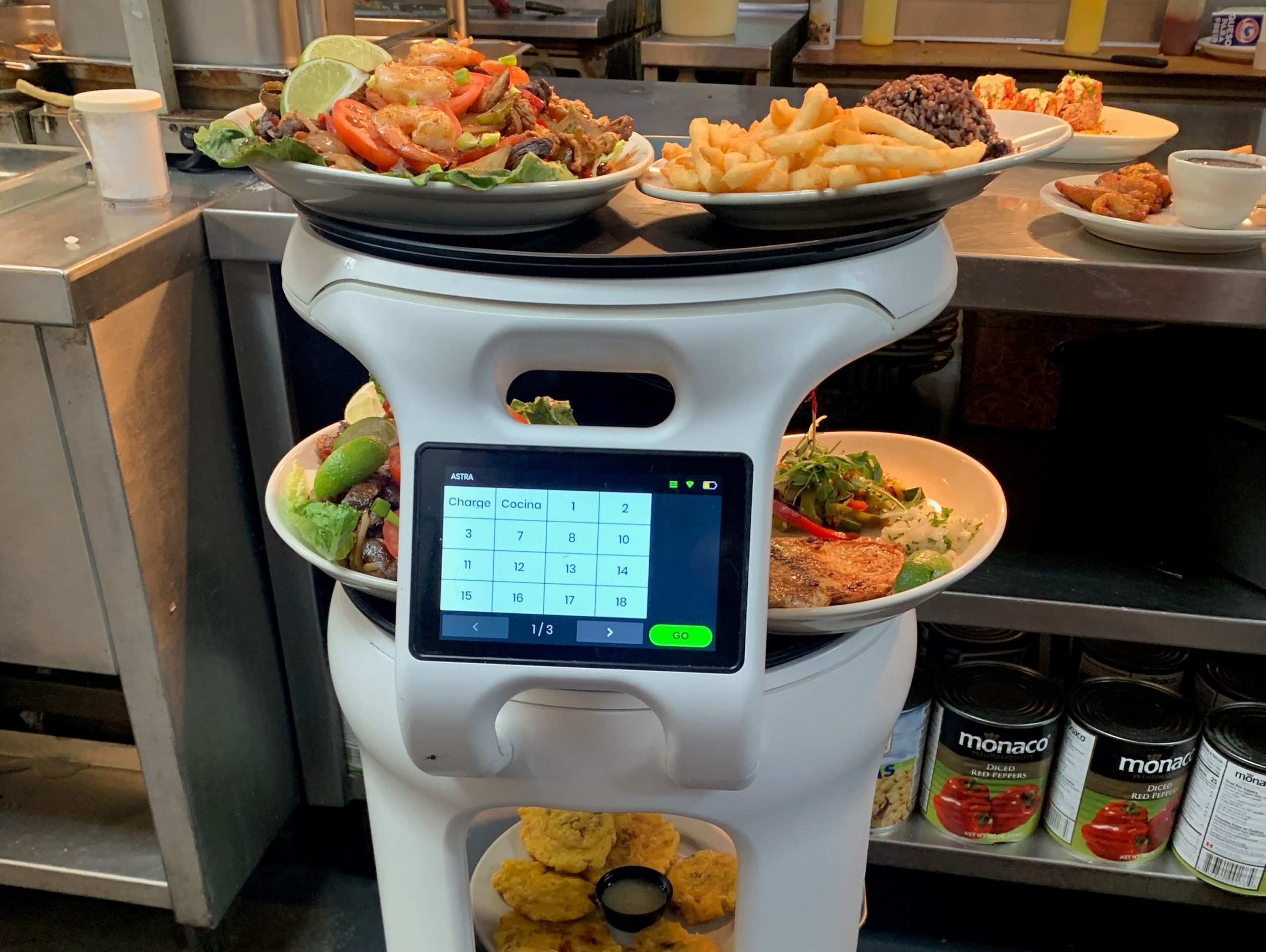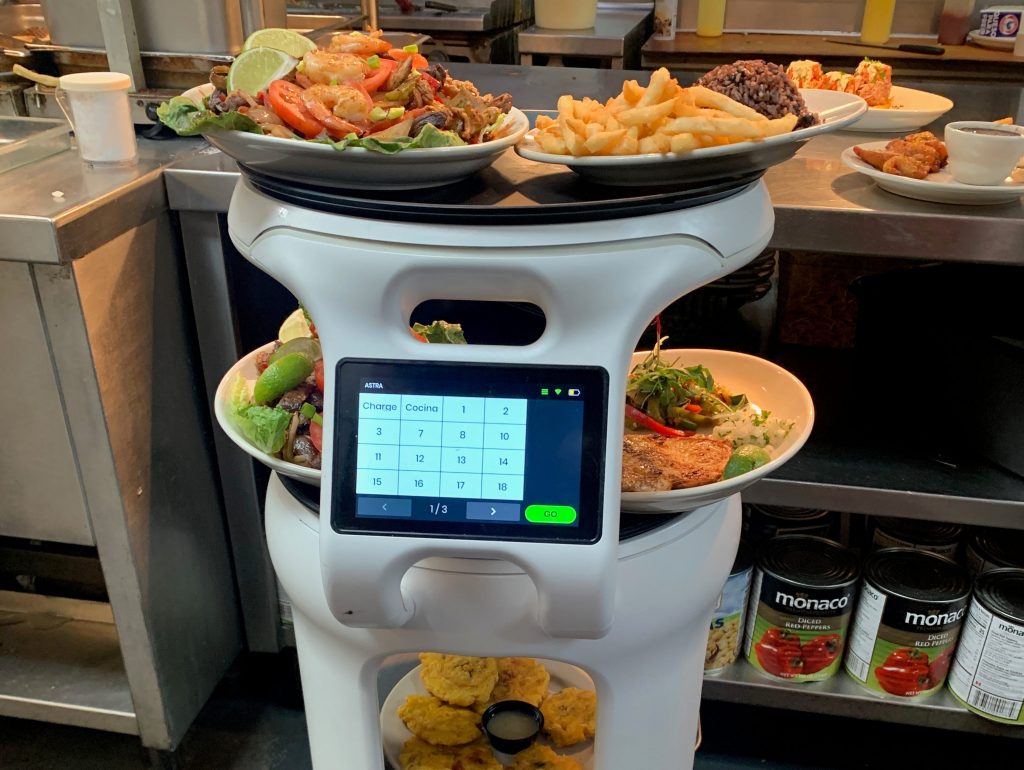
Sergio's Restaurant
- A Florida restaurant chain says staff got bigger tips after it hired a robot to help out, The NYT reports.
- The $1,000-a-month robot carries plates from the kitchen to staff, who take the plates to guests.
- It gives staff more time to serve and talk to customers, the restaurant chain owner said.
A restaurant chain in Florida says staff received more tips after it began paying for a $1,000-a-month robot to carry plates, The New York Times reported on Tuesday.
Carlos Gazitua, owner and CEO of Sergio's Restaurant chain, told The Times that he added Softbank's Servi robot to one of his restaurants in July when he was struggling to find workers.
The robot carries food from the kitchen to the dining room, where servers collect the plates and deliver them to customers' tables. Staff can talk to customers more and serve more tables, Gazitua told The Times, which has led to customers giving bigger tips.
"In the first two hours, the servers were amazed!" he told The Times.
Sergio's Restaurant now has a robot for each of its six restaurants, Gazitua told Insider.
Servi robots use 3D cameras and laser-sensing technology to navigate around tables and customers in the restaurant.
Gazitua wants the robots to become servers' "personal assistants" by carrying plates and taking dirty dishes back to the dishwasher area, he told Insider.
"This will create 25-30% percent more efficiency for our wait staff so they can focus more on our guests and in return make more money by taking more tables and/or creating a better hospitality experience," he told Insider.
The robots cost approximately $1,000 a month, Gazitua told Insider.
Gazitua brought in the first Servi robot when the restaurant chain was at a "crisis" point during the labor shortage, Gazitua told The Times. "We couldn't find anyone."
Businesses across the US say they're struggling to hire staff, and some claim that people don't want to work anymore. But hospitality workers say they're leaving the industry in search of better wages, benefits, and working conditions.
A mix of higher wages and a shortage of workers has led to some restaurants across the US closing their dining rooms or cutting their opening hours.
Other restaurants have also turned to robots amid the labor shortage.
In September, a Latin American restaurant in Texas started renting three robots for $15 a day each to serve guests as the company scrambled for workers. The robots can welcome customers, carry food to tables, and sing, the restaurant owner said.

